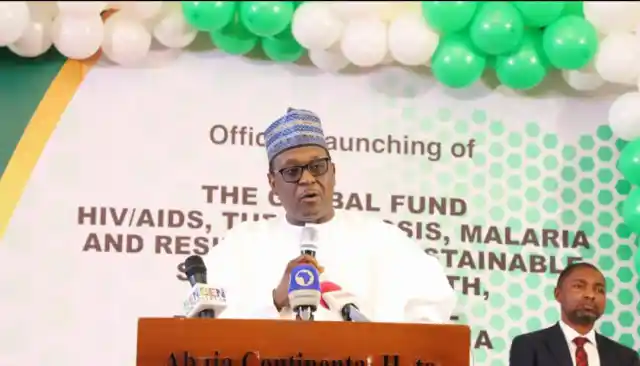By Iyemah David
The Grant Implementation Cycle (GC7) has awarded a total of $$933,156,931 grants for interventions against the three diseases in the next three years in Nigeria.
The Coordinating Minister of Health and Social Welfare, Professor Muhammad Ali Pate, said this on Tuesday in Abuja, during the launching ceremony of GC7.
Pate, who is also Global Fund Country Coordinating Mechanism, (CCM), said thag the GC7 approved by the Global Fund to Fight AIDS, Tuberculosis, and Malaria in the country.
He said that the launch of GC7 represents a significant milestone in the country’s health sector renewal, with a clear roadmap and commitment to achieving ambitious health targets through collaborative efforts and transparent resource utilization.
He said that federal government and its partners, were determined to apply the funds judiciously and transparently, implementing the Compact signed under the Health Sector Renewal Investment Initiative in December of 2023 unveiled by President Bola Ahmed Tinubu.
He said that the Compact unveiled by President Tinubu included community-level monitoring to ensure transparency, accountability, and citizens’ involvement in overseeing the utilization of resources.
“As One Team, we will hold ourselves accountable and work to scale services among all the vulnerable populations.
“Specifically, during the grant period from now till 2026, we will increase PMCT services, using the primary health care system. We will also scale the case notification rate for all forms of TB from where it is and sustain the current success rate beyond the initial target of 90% and enrol 100% of drug resistant TB on appropriate treatment.
“On malaria, the goal is to improve access and utilization of vector control interventions and ensure the provision of chemo prevention, diagnosis and appropriate treatment for 80% of the target population,” he said.
He commended the Global Fund for collaborating with the government of Nigeria to retrain up to 120,000 frontline health workers in the coming periods, as none of this would be possible without adequate well-trained, frontline health workforce.
Committing to ambitious targets, the minister outlined specific goals, such as achieving the 95-95-95 target for HIV by 2025 and improving TB case notification rates and treatment for drug-resistant TB.
“We have set a very ambitious target of 95 95 95 by 2025; and we will spend the coming years executing relentlessly on the things that we have committed.
“As a microcosm of the SWAP, the CCM is committing itself to a robust framework for tracking the resources of governmental and non-governmental actors in a transparent manner.
“Ultimately, we want to ensure value for funds both for our development partners and, particularly, for Nigerians,” he said.
He advocated for supporting local manufacturing within the healthcare value chain, urging the Global Fund and principal recipients to entities intending to manufacture health commodities in the country.
He urged all stakeholders to move from talk to action, committing to relentless execution of the outlined plans. He assured rigorous monitoring and accountability for the judicious use of the granted resources.




